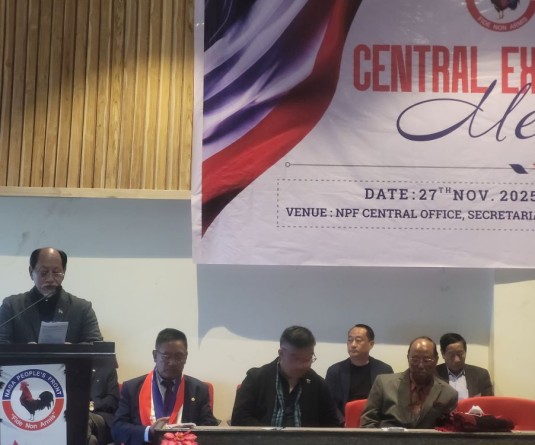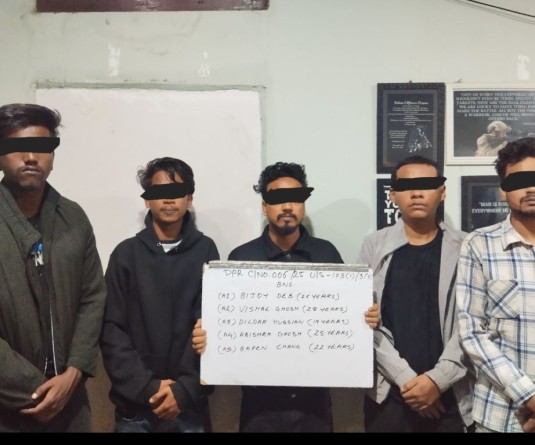
Kohima, November 27 (MExN): The Angami Public Organization (APO) has formally expressed objections to the proposed copyright agreement between tribal apex bodies of Nagaland and the state government, stating that the inclusion of non-Naga tribes in a work titled “Documentation of Traditional Attire of Indigenous Tribes of Nagaland” is unacceptable.
In a communication addressed to the Chairman of the Nagaland Handloom & Handicrafts Development Corporation Ltd., the APO acknowledged the efforts in creating the documentation, which covers traditional attire of the 15 recognized Naga tribes, as well as the attire of the Kachari, Kuki, and Garo communities. However, the APO criticized the decision to include these three non-Naga tribes under the title that refers specifically to indigenous tribes of Nagaland.
“The inclusion of these 3 (three) Non-Naga tribes who are not indigenous tribes of the State and titled the work as ‘Traditional Attire of Indigenous Tribes of Nagaland’ is highly objectionable and unacceptable to the APO,” the organization said in its letter.
The proposed copyright agreement designates the apex tribal bodies as “Primary Owner” and the Government of Nagaland, represented by the Nagaland Handloom & Handicraft Development Corporation (NHHDC) and Nagaland Science & Technology Council (NASTEC), as “Secondary Owner,” together referred to as “Co-Owners.” The APO objected to extending co-ownership rights to the three non-Naga tribes, arguing that their indigeneity lies outside Nagaland.
The organization acknowledged that some individuals from these tribes had migrated to Nagaland and lived among Naga communities, and that the state government recognized them as indigenous inhabitants for the purposes of employment and landholding following Nagaland’s formation in 1963. Nonetheless, the APO stressed that this does not justify labeling them as indigenous tribes of Nagaland in copyrightable works.
“For the purpose of copyright of certain copyrightable works under the Indian Copyright Law, terming a tribe/tribes as indigenous tribe/tribes of Nagaland whose indigeneity is not from Nagaland will have serious implications or ramifications for future Naga generations,” the letter stated.
Citing these concerns, the APO conveyed that it cannot support the proposed copyright agreement in its current form, emphasizing that the decision was taken in the interest of Nagas as a whole.






